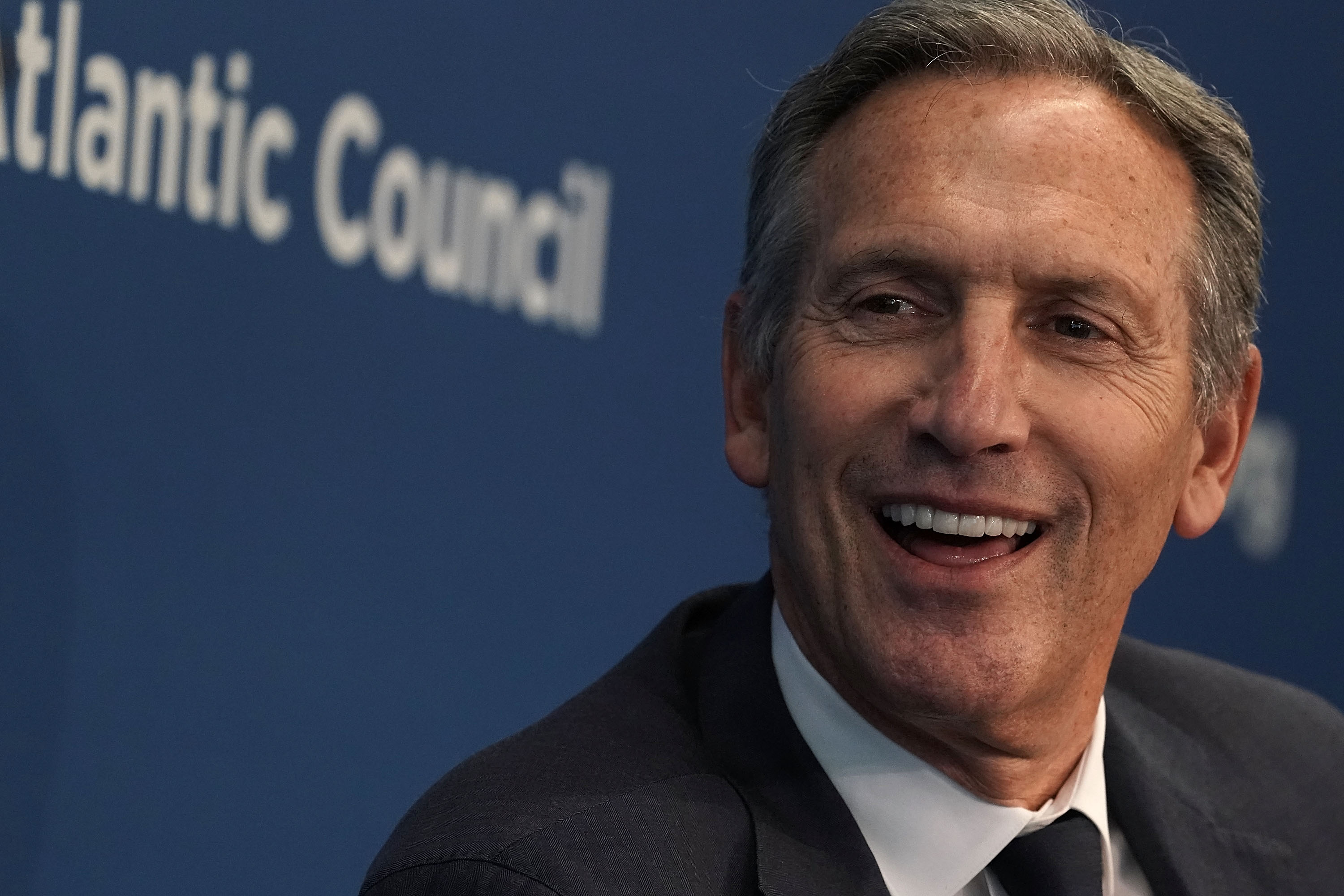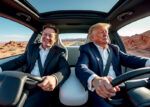At Starbucks, Schultz pushed envelope on social issues
Former Starbucks CEO Howard Schultz is weigihing a run for president (ALEX WONG)
New York (AFP) – In building Starbucks into a global behemoth, Howard Schultz has embraced a range of difficult, occasionally polarizing social debates that companies often try to dodge.
The former Starbucks chief executive, who is weighing a run for US president as an independent, has been unwavering in support of gay marriage and racial equality, stances in alignment with the progressive side of American politics.
Yet Schultz — whose potential candidacy drew mixed reviews including ridicule from President Donald Trump — has also found common ground with themes thought of as central in “red” America, as with a drive to hire veterans at the coffee chain and his co-authorship of the book, “For love of country: what our veterans can teach us about citizenship, heroism and sacrifice.”
Schultz told the CBS news show “60 Minutes” his candidacy would be “as a centrist independent outside of the two-party system.”
If he runs, Schultz could draw on his legacy of on social issues as much as on his success in transforming Starbucks from a sleepy Seattle cafe into a coffee giant with some 22,500 stores in 70 countries.
The “60 Minutes” appearance begins a speaking tour that kicks off Monday in New York and snakes through 12 major US cities through early March.
Schultz, whose wealth is estimated at $3.4 billion by Forbes, is promoting his just-published memoir “From the Ground Up,” which chronicles his rise from Brooklyn housing projects to the top of what has become one of America’s most iconic companies.
That tale of a self-made billionaire stands in contrast to Trump, whose wealth originated with support from his father and whom Schultz dismissed to “60 Minutes” as “not qualified to be the president.”
Trump hit back on Monday on Twitter.
“Howard Schultz doesn’t have the ‘guts’ to run for President! Watched him on @60Minutes last night and I agree with him that’s he is not the ‘smartest person.’ Besides, America already has that! I only hope that Starbucks is still paying me their rent in Trump Tower!”
Leading Democrats also reacted negatively, with some threatening Starbucks boycotts on the view that an independent Schultz candidacy would divide the progressive electorate and hand Trump a second term.
“There are two ways Trump can get re-elected,” Jim Kessler of the center-left think tank Third Way said on Twitter.
“Democrats nominate someone who can’t win moderate voters or a third party candidate siphons off enough votes that 40% wins an election. Stick to coffee #howardschultz.”
– CEO President? –
A self-described lifelong Democrat, Schultz won big points from gay rights supporters at the company’s 2013 annual meeting, when he famously invited a shareholder upset at the company’s support of gay marriage to sell his shares if he did not like the stance.
Schultz was also behind the chain’s ill-fated “Race Together” initiative that sought to compel conversations about race as guests awaited their morning coffee, an idea quickly ditched because it proved awkward in practice, but which Schultz described as close to his heart and an effort “to stimulate conversation, empathy and compassion toward one another.”
Schultz was also at the forefront of the company’s response to the April 2018 arrest of two African American men in a Philadelphia Starbucks, saying he was “ashamed” of their treatment and enlisting civil rights experts with the NAACP Legal Defense Fund and other groups to help the company improve its policies.
These high-profile stances have boosted Schultz’s credentials as a progressive, yet the company is also known for its resistance to labor unions, Washington Post columnist Helaine Olen noted in a June 2018 piece criticizing a potential Schultz candidacy when the idea was floated earlier.
“A CEO for president is one of those things that on first blush in our turbo-capitalist society seems to make a lot of sense,” Olen said. “CEOs take advice but generally don’t need to actually listen to it. They do not govern by consensus.
“And satisfying shareholders (the vast majority of whom represent business interests or affluent individuals) or other company investors on a quarterly basis is a far cry from running a government,” she added. “The common good is a discretionary concept.”
Disclaimer: This story is published from a syndicated feed. Siliconeer does not assume any liability for the above story. Validity of the above story is for 7 Days from original date of publishing. Content copyright AFP.


